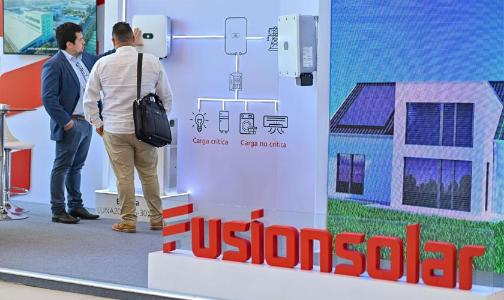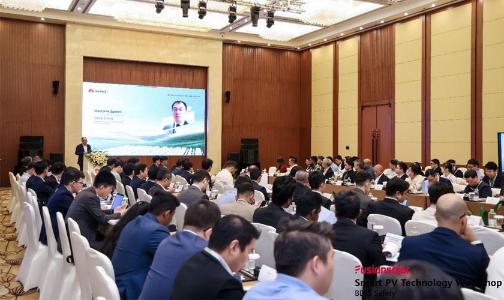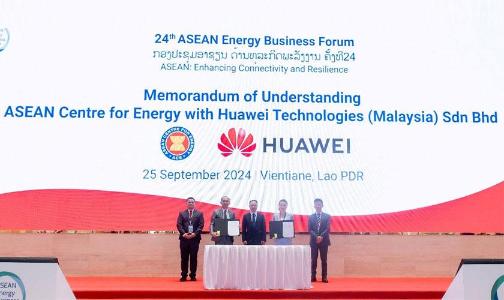Dhaka, 9 November 2024: Bangladesh is witnessing remarkable growth in its solar energy
sector, showcasing immense potential for renewable energy development. To address this gap, Huawei and
Centre for Energy Research (CER) of United International University (UIU) have jointly inaugurated the first
Solar Energy Lab with ESS facilities in Bangladesh at the UIU premises. This pioneering solar lab will offer
top-notch training and research opportunities in the renewable and sustainable energy sector.
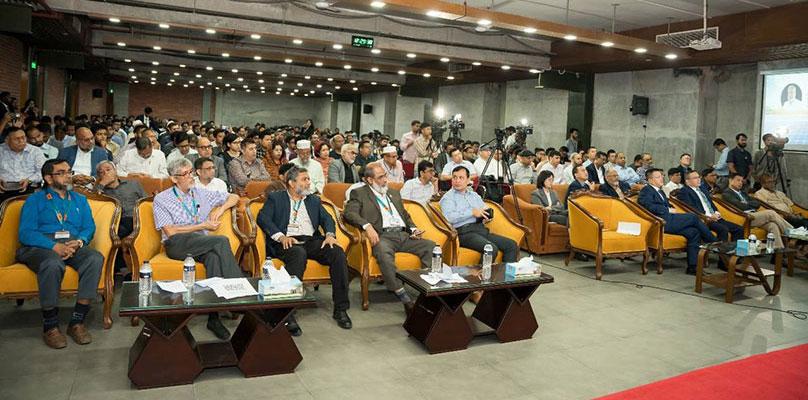
The inauguration event took place in UIU’s Multipurpose Hall today followed by a seminar on 'The Role of
Smart Grid in the Future Power System'. The event was chaired by Prof. Dr. Md. Abul Kashem Mia, Vice
Chancellor, United International University; Prof. Dr. Muhammad Fouzul Kabir Khan, Hon’ble Adviser, Ministry
of Power, Energy and Mineral Resources Government of Bangladesh, was the Chief guest; The Special Guests of
the event were H.E. Yao Wen, Ambassador, People’s Republic of China to Bangladesh; Prof. M. Rezwan Khan,
Chairman, Power Grid Bangladesh PLC; Pan Junfeng, CEO, Huawei Technologies (Bangladesh) Ltd. Other high
officials of the Government, UIU, Huawei and CER were also present at the seminar.
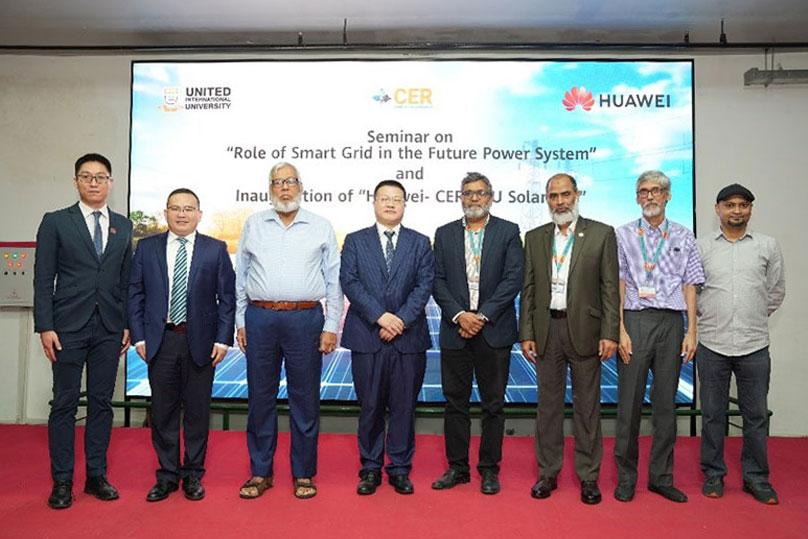
One of the aims of this facilities will be to conduct capacity building and human resource development
activities. Huawei and CER, UIU will combinedly develop different course contents for organizing trainings
that meet the purposes of Bangladesh market. The course contents will also include the latest research and
technological development in the field of renewable energy technology, digital power, and smart energy
solutions.
At the opening ceremony, Prof. Dr. Muhammad Fouzul Kabir Khan said, “I want to talk about the smart grid.
What we have seen over the years that electricity consumption has radically changed. So, we are introducing
renewable sources like solar and wind. Now we need to move towards the smart grid, which we are working on.
We are also giving priority to battery storage systems.”
H.E. Yao Wen said, “With the inauguration of the first solar lab with ESS systems at United International
University, we are taking a significant step towards empowering our youth in the renewable energy sector.
Today marks a significant milestone in the China-Bangladesh partnership as we inaugurate the first solar lab
with ESS systems at United International University. This collaboration not only reflects our commitment to
enhancing local talent development through Chinese investment but also highlights the long-standing
contributions to the Centre for Energy Research of UIU in advancing the solar energy sector.”
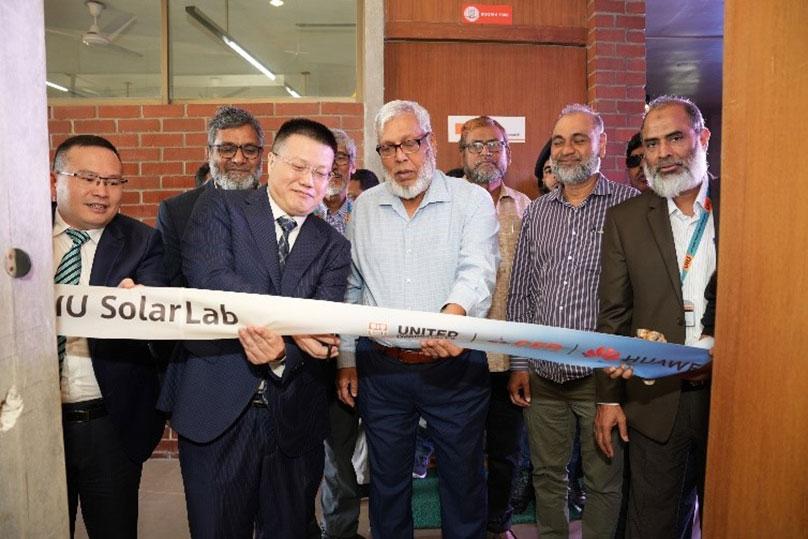
Pan Junfeng said, “We see that Bangladesh is initiating extensive plans to transition away from fossil fuels
by establishing solar power plants in near future. In that light, it is mentionable that till December 31,
2023, Huawei Digital Power has helped Bangladesh customers build 600 MW+ Digital Power plants, generating
437.5 million kWh of green power, reducing carbon emissions by 207,867 tons, which is equivalent to planting
284,450 trees. We believe that, as a leader in ICT and digital power, Huawei and country's prominent energy
research center, the Centre for Energy Research at UIU, can jointly provide invaluable opportunities for
students and professionals to learn, grow, and contribute to the renewable energy landscape through this
Solar Lab.
Shahriar Ahmed Chowdhury, Director, Centre for Energy Research (CER), UIU said, “The renewable energy sector
in Bangladesh is rapidly evolving, with projections suggesting the creation of 3,000 to 4,000 new green jobs
in the coming years as solar power becomes increasingly cost-effective. The country has seen significant
growth, adding a record 42 megawatts (MW) of new rooftop solar capacity in 2023 alone. However, there
remains a pressing need for hands-on training facilities to equip professionals and students with the
necessary skills. This lab can play a crucial role in equipping our students and professionals with
practical knowledge in this sector.”
Huawei-CER, UIU solar lab will offer three months certificate courses to the young engineers and
professionals. Interested applicants can get enrolled by filling up online application when it is live.
Curriculum and details of the courses can be found on the CER website.
Centre for Energy Research (CER) was established in 2010 at United International University with the aim to
enhance research in the fields of renewable and sustainable energy, its utilization and efficient
management, and policy formulation through research and development. CER, UIU has designed almost all the
Solar diesel hybrid Mini-grids for rural electrification in Bangladesh. CER is also one of the testing
institutions of Solar Home System (SHS) equipment in Bangladesh for certification of solar PV equipment
according to IDCOL standard. As of now, it has tested over 750 solar PV equipment in its lab. For its
innovative research works Centre for Energy Research of UIU received 8 international awards along with
United Nation’s Momentum for Change Award in 2016 and also received 4 National Awards. The state of art
research laboratory under CER will carry out test and research in the field of renewable energy. It is
mentionable that the dedicated solar system in the lab can provide solar systems along with Energy Storage
System (ESS), which will enhance students hands-on learning opportunities.
